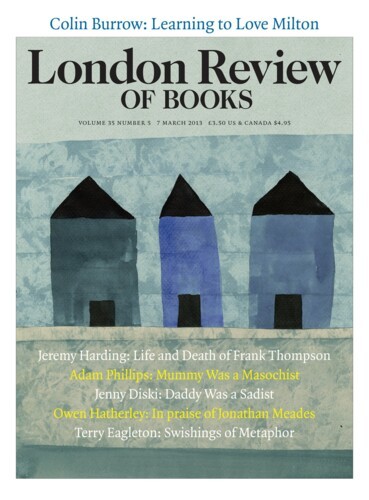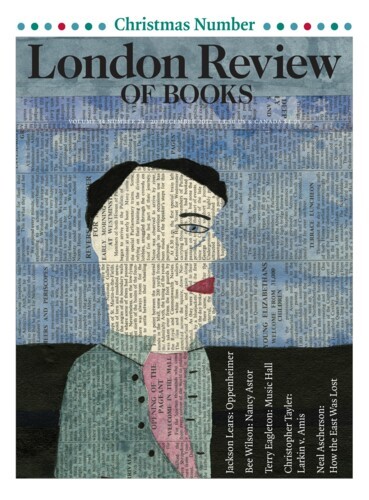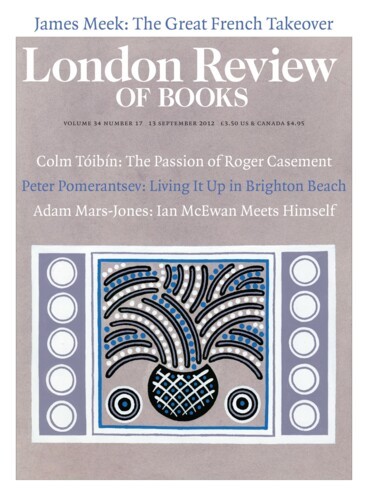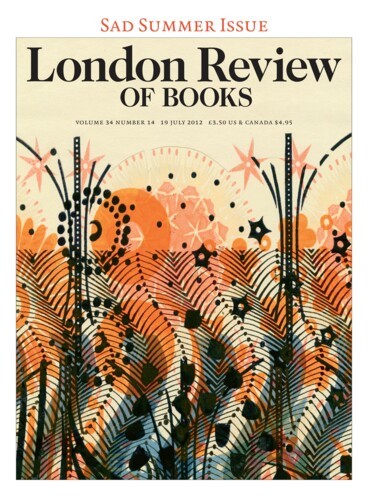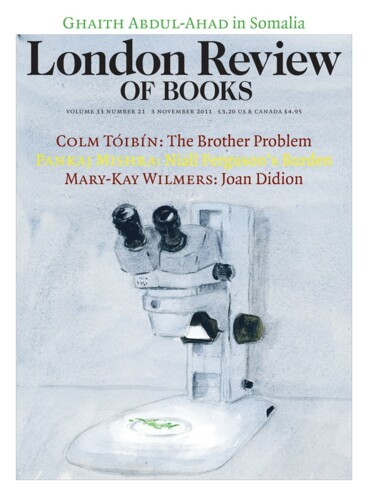Shaved, Rouged and Chignoned: Fanny and Stella
Terry Eagleton, 7 March 2013
Beneath their capacious skirts, Fanny and Stella were Frederick Park and Ernest Boulton, two young cross-dressers who were put on trial in Westminster Hall in 1871. Cross-dressing was not a criminal offence, so the men were charged instead with outraging public decency. On the slightest of pretexts, the prosecution also threw in ‘the abominable crime of buggery’, along with...
